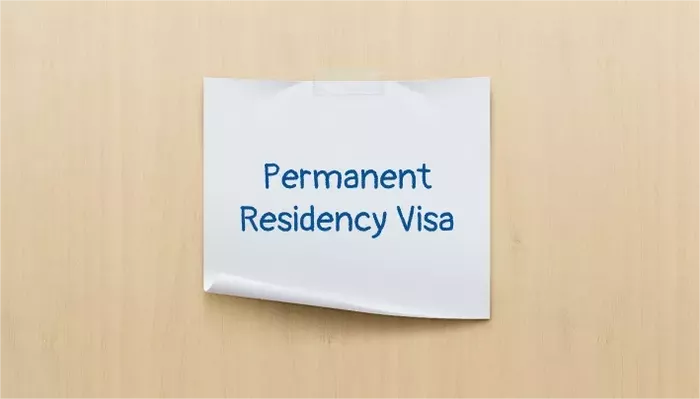In today’s interconnected world, the movement of people across borders has become increasingly common. Whether for work, study, or personal reasons, individuals often find themselves navigating the complex realm of immigration regulations. Among the various options available for residing in a foreign country, two primary avenues are often considered: permanent residency and visas. While both offer the opportunity to live and work in a different country, they differ significantly in terms of rights, duration, and eligibility criteria.
Understanding Permanent Residency
Permanent residency, often referred to as a permanent resident status or PR, grants an individual the right to reside indefinitely within a particular country. While the specific rights and privileges vary depending on the country, permanent residents typically enjoy many of the same benefits as citizens, including access to healthcare, education, and social services. They may also have the right to work and travel freely within the country without needing additional authorization.
One of the defining features of permanent residency is its permanence. Unlike temporary visas, which have an expiration date and often require renewal, permanent residency is not subject to the same time limitations. Once granted, a permanent resident status remains in effect until the individual voluntarily relinquishes it or becomes ineligible due to certain circumstances, such as criminal activity or prolonged absence from the country.
Types of Visas
Visas, on the other hand, are temporary permissions granted to individuals for specific purposes and durations. There is a wide range of visa types, each tailored to accommodate different needs, including tourism, work, study, and family reunification. While visas provide individuals with the legal authority to enter and stay in a foreign country for a designated period, they do not confer the same level of rights and privileges as permanent residency.
Visas are typically issued for a finite duration, ranging from days to years, depending on the specific visa category and the policies of the host country. Once the visa expires, the individual is generally required to leave the country unless they obtain an extension or transition to a different immigration status.
Rights and Privileges
One of the most significant distinctions between permanent residency and visas lies in the rights and privileges afforded to individuals under each status. Permanent residents, as mentioned earlier, often enjoy nearly the same rights as citizens, with few exceptions such as voting in elections or holding certain public offices. They have the right to live and work in the country indefinitely, access public services, and in some cases, sponsor family members for immigration.
Visa holders, on the other hand, are subject to more limited rights and privileges. While they may have permission to work, study, or engage in other approved activities during their stay, their rights are typically tied to the terms and conditions of their visa. For example, a work visa may restrict the individual to employment with a specific employer or within a particular industry.
Eligibility Criteria and Application Process
The eligibility criteria and application processes for permanent residency and visas can vary significantly depending on the country and the specific immigration program. However, there are some commonalities worth noting.
In general, permanent residency often requires individuals to meet stringent criteria related to factors such as employment, investment, family ties, or humanitarian reasons. Applicants may need to demonstrate proficiency in the country’s official language, undergo background checks, and meet minimum income or asset requirements. The application process for permanent residency can be lengthy and complex, involving extensive documentation and possibly interviews with immigration officials.
Visas, on the other hand, typically have more straightforward eligibility requirements, although they can still vary widely depending on the visa category. For example, a tourist visa may only require proof of sufficient funds and a return ticket, while a work visa may necessitate a job offer from a sponsoring employer and evidence of relevant qualifications or experience. The application process for visas often involves completing a form, providing supporting documentation, and attending an interview at a consulate or embassy.
Renewal and Maintenance
Another key difference between permanent residency and visas is the process for renewal and maintenance of status. Permanent residents generally do not need to renew their status regularly, as it remains in effect indefinitely. However, they may be required to fulfill certain obligations to maintain their status, such as residing in the country for a minimum period each year or avoiding extended absences.
Visa holders, on the other hand, must typically renew their visas before they expire if they wish to extend their stay in the country. The renewal process may involve submitting a new application, providing updated documentation, and paying applicable fees. Failure to renew a visa before it expires can result in the individual losing their legal status and facing potential consequences, such as deportation or being barred from reentering the country.
Conclusion
In summary, permanent residency and visas are two distinct immigration statuses that offer individuals the opportunity to live and work in a foreign country. While both serve as pathways to residency, they differ significantly in terms of rights, duration, and eligibility criteria. Permanent residency provides individuals with indefinite permission to reside in a country and offers nearly the same rights as citizens, whereas visas are temporary permissions granted for specific purposes and durations. Understanding the differences between these two statuses is essential for individuals seeking to navigate the complexities of immigration and make informed decisions about their residency options.


